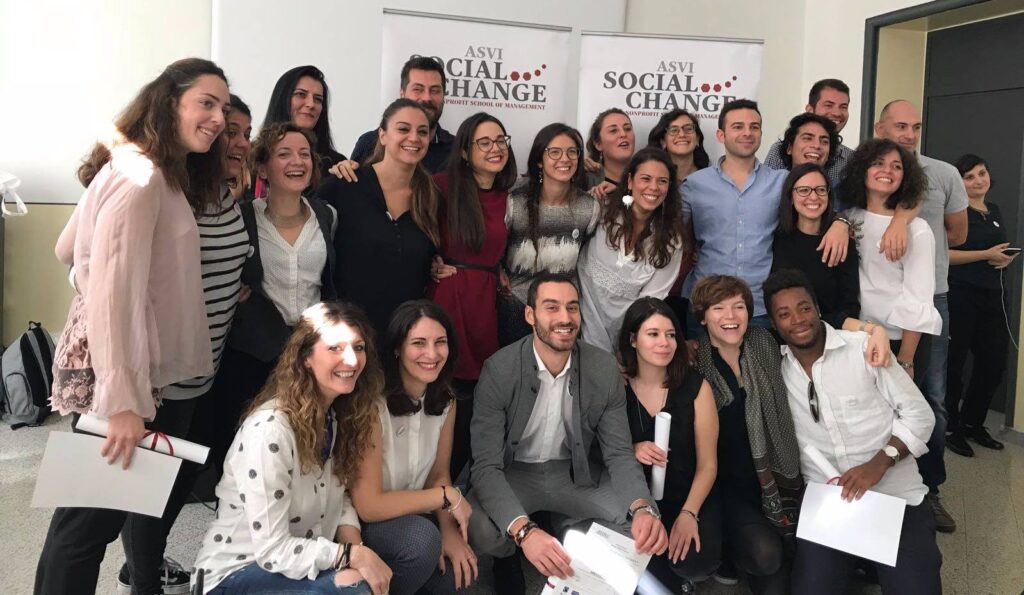When presenting their profiles, people often tend to underline “hard skills” and qualifications, because of course, without the required technical competences it’s impossible to perform a job with the required professionality. However, many other candidates are technically prepared. Technical knowledge is a necessary precondition, but not sufficient in itself. In order to enter the sector and even more so to stay in it, that’s not enough.
HR Managers of NGOs and Nonprofit organizations also value attitude, quality of character, the way an applicant works and makes the team work – all characteristics that are strictly connected with the “soft skills”. It is better to have a great attitude and limited experience than the opposite.
Tirso Puig, Head of Social Change School’s Career Development Service, will help us understand the right attitude to work in the Nonprofit sector, summarising in its comment his own and the international HRM’s experiences.
“If I had to describe in a few words the right attitude to work in the Nonprofit sector, I would surely mention:
- Previous social commitment: it is not enough to only be prepared, how many other candidates are? What often makes the difference is being engaged in the causes you are working with. For example: if you are asked why you want a job in the field of sustainable development, the responsible of selection will be more inclined to hire you if you have already worked as a volunteer in the same field or anyway if you have demonstrated an interest for that topic in the past.
- Ethics and moral: what do you believe in? How can you prove it? It is becoming increasingly important to select people with solid personal values, even more so considering the commitment a worker of the sector should have. The standards expected by an NGO from this point of view are extremely high, not only in light of the recent scandals that involved many Nonprofit organizations. And they are important now more than ever, because being the bearer of these values allows you to act from the inside and help keeping a high alert from the inside.
- Openness to diversity: whether you are working on the field or from the headquarters, the ever more complex world scenario where Nonprofit professionals work puts them more and more in contact with international realities, cultures and staff. For this reason, knowing how to move in multicultural contexts and empathy are actually fundamental characteristics and may be a trump card in the selection phase. Even if they might seem things of small importance when compared with an adequate qualification for a specific vacancy or with years of experience to meet the requirements – openness to diversity and empathy may be the qualities that will help you seal the deal.
- Proactivity: a frequently used word that sometimes seems vague and unclear, but which still remains one of the “most winning” and vital attitudes. In the Nonprofit sector proactivity is paramount (yet always remembering to maintain the required professionality), first of all to enter the labour market, and secondly for networking and mapping, themes we very often address with our students. You need to put yourself on the map, you need to know organizations and institutions, you need to repeatedly insist with your applications: you need to be proactive. An attitude that is also an added value when you are considered and selected for a job position.
- Humility: your work is often done in collaboration with other people, in group. For this reason, you need to understand that everybody’s job is fundamental, and that your job is not more important than the others’. You need to be humble and recognise that you can’t do everything on your own.”
For Marco Crescenzi, the sector has changed very much in 20 years, and organizations give much more importance to professionality than before:
“Of all that Tirso has correctly said, I would like to once more underline humility – even for our fellows. Being humble sometimes also means to accept positions lower than your aspirations and to grow overtime. Being humble sometimes also means to study another language (for example, French). Being humble means listening to advises. It means challenging yourself and your ideas, it means taking your responsibilities and not leaving it to others to fix your problems and faults.
For those aspiring to work as managers, these are also the things that will make a difference:
- Being strictly results-oriented, first of all for the beneficiaries and the organization, without the need to walk on other people like a tank, but also without being too patient and friendly – no need for unproductive do-goodery.
- Leadership– involvement and persuasion of stakeholders: the beneficiaries of the projects, the staff, partners, donors, institutions, businesses, etc.
Our job doesn’t need us to be “heroes”, but it surely requires extremely high standards, and we cannot evaluate ourselves neither with our commitment nor with the (broad) metrics of other sectors.”
And now we give a couple of advises to the fellows enrolled in our Maters:
- HOPE – Master in Humanitarian Operations in Emergencies: your psychophysical resilience is what will make the difference; the willingness to sacrifice and feeling your job as a mission, no matter the difficulties.
- FRAME – Master in Fundraising Management: public relations are essential for you, bringing an added value (even if it’s only a smile) to relationships, increasing your ability to understand every situation and being able to deal with everybody;
- PMC – Master in Project Management for International Cooperation: flexibility is what NGOs are expecting from you, because you might find yourselves in any situation – from needing to be a communicator, to writing a project, to reporting. But you will also need to be precise and to respect deadlines.
In general, our suggestion is to identify your strengths and weaknesses: emphasise the first and improve the latter, knowing that to be “winners” in the Nonprofit sector you need to continue growing.
You can also read #Working4NGOs: The new section by Career Development Service.



